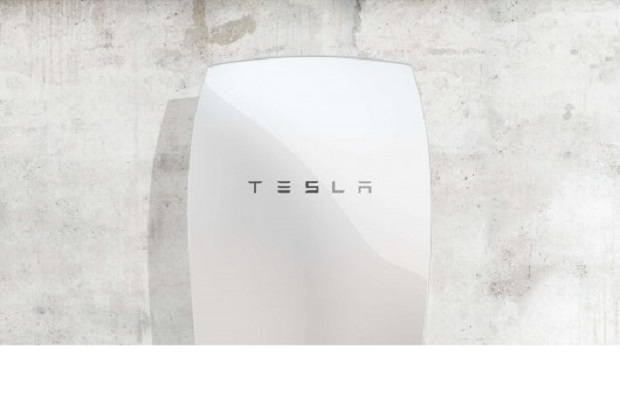Electric car maker Tesla has revealed a new ‘Powerwall’ battery system that can power homes and business through solar power.
Tesla CEO Elon Musk said the basic 10 kilowatt-hour Powerwall home system will sell for $3,500 and use much of the same technology found in Tesla electric cars, known for having the longest range per car of any pure electrics on the road.
“In a lot of ways it’s taking derivative technology from the car,” he said.
“This is within the power of humanity to do,” Musk told the large crowd gathered at Tesla’s design center in this Los Angeles suburb. “We have done things like this before. It is not impossible.”
The stationary home battery offers 10 kWh of storage capacity for the relatively modest price of US$3,500.
A smaller unit is also available at 7 kWh for $3,000, and homeowners can stack multiple units if needed.
The facility and event where the announcement was made were powered by the new Tesla batteries, which were charged during the day by rooftop solar panels.
Consisting of a DC to DC converter, the battery works with solar systems right out of the box (though installation is extra), to store energy during the day for powering the home at night or during outages due to storms or natural disasters.
With that in mind, Musk said the units can work in cold climates, operating within a temperature range of -20° C (-4° F) to 43° C (110° F). Non-solar homes can also benefit by storing energy from the grid during low rate periods and using it during expensive peak hours. The lithium-ion battery also consists of a liquid thermal control system and software that receives dispatch commands from a solar inverter.
“The fact that it’s wall-mounted is vital,” said Musk, pointing out that no special battery room is needed, and that the flat, roughly 4-ft by 3-ft (0.9 x 1.2 m) unit can be mounted indoors on a garage wall or the outdoor wall of a home.
For the future to be good, we need electric transport, solar power and (of course) … pic.twitter.com/8mwVWukQDL
— Elon Musk (@elonmusk) April 29, 2015
Musk also envisioned the battery for use in remote areas of the world that lack an energy infrastructure, and likened their hopeful adoption to that of cell phones, which leapfrogged landlines in places previously without phone service.
Tesla plans to start shipping the units to installers in the US by this summer.
